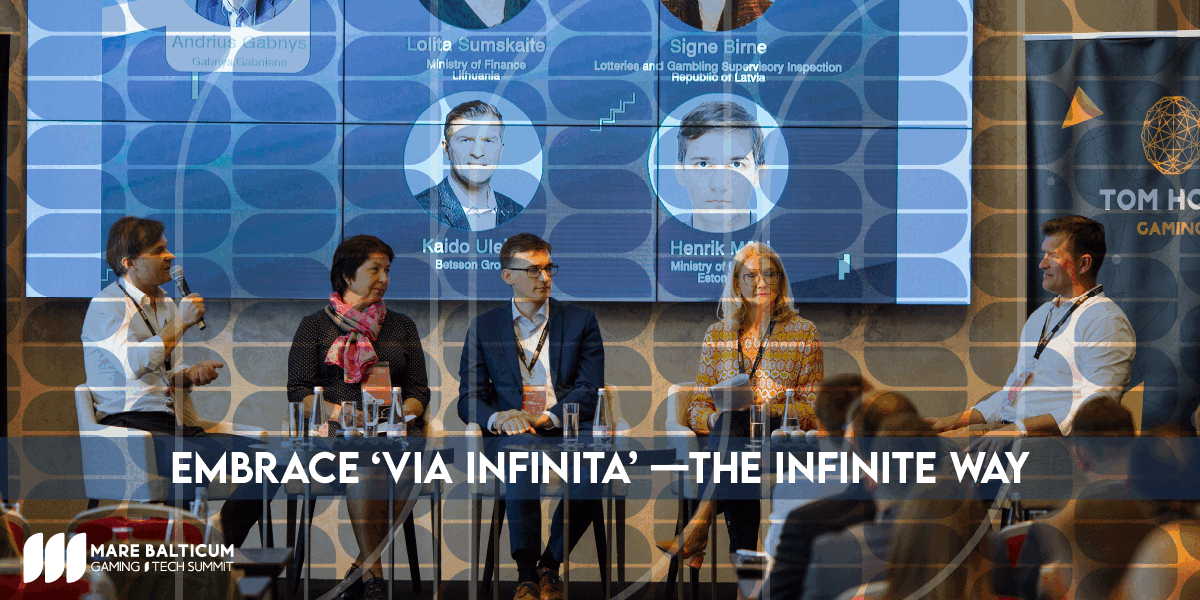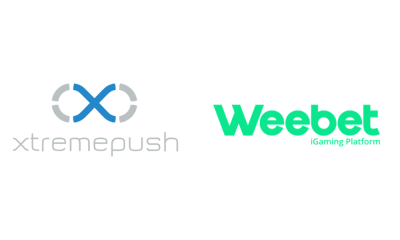Interviews
Exploring the Metaverse and AI’s role in it

with modl.ai’s CEO & Co-founder Christoffer Holmgård
- How do you define a metaverse?
The metaverse is a challenging thing to define, partly because it’s such an abstract concept, but also as no one has created one yet – so the exact scope of what we’re talking about is a bit blurry. To define the Metaverse, it makes sense to look to fiction, where the term was originally coined. In Neal Stephenson’s Snow Crash, the Metaverse is a digital, online universe, perceived from a first-person perspective, that exists independently of whether you are logged into it or not. It’s a persistent place that you can access, change, leave, and return to.
There’s a myriad of possible definitions, but there are common threads between them. The metaverse could be defined as a multi-user real-time virtual space where individuals around the world can connect via a network, co-exist and socialise. Many games and platforms exist already that could fit this description, but what sets apart the metaverse from a traditional multiplayer experience is the ability for players to create and share content to shape the world around them in a more or less persistent setting.
- When do you think the first Metaverse will be created?
Some think we’ve already arrived, others think the metaverse will be far grander in scale. If you look at your gaming library today, examples that resemble metaverses will instantly jump out at you in the shape of Minecraft, Dreams, Fall Guys, Roblox and Fortnite. For many people, these titles are no longer considered games but persistent spaces to connect and socialise through virtual experiences – that may or may not include gaming.
Historically, the gaming industry has seen many forms of the metaverse since its inception. World of Warcraft has had its own functioning virtual and digital metaverse in the form of a digital and virtual economy for decades. Second Life is another early example that partly fits the bill, and EVE Online in particular stands out as a persistent universe shared between all the players where large organizations and even an economy have sprung up. Looking even further back, the early Multi-User Dungeons of the 1970s – or MUDs – might be considered proto-metaverses without graphics. Each of these examples contain different characteristics that define the Metaverse, even if they didn’t manage to achieve them all.
- How are you seeing the metaverse trend being reflected in the industry right now?
We’re seeing a drive across the games industry toward creating platforms for Metaverse-like experiences. Using either existing technologies or games, and even building new ones. The trend has been going on for quite some years, but it seems we’re reaching a point where the idea of Metaverses is coming together for both players and large industry actors. What’s more, the global pandemic has undoubtedly accelerated some of these trends that were already underway.
Fortnite, Roblox, and other big titles have slowly evolved from games to online spaces where people can interact and spend virtual currency on in-game items to build relationships and experience something fun and unique. Elsewhere, the trend continues thanks to games like Fortnite, which continues to develop more virtual experiences like its famous concerts. What’s more, Fortnite’s publisher, EPIC Games, recently raised $1 billion to support its future vision to build the metaverse.
With nearly 40 million daily users, the online gaming platform Roblox has become an incredibly popular online community. The game allows its users near-limitless possibilities to create, buy and sell, customise and socialise. What’s more, Roblox no longer calls itself a game on its website anymore; instead, it’s now an experience.
In essence, it’s a collection of semi-persistent spaces created by players using the same foundational tools and protocols. They make their spaces uniquely their own by changing and expanding templates and customising them in creative ways that no single game development company could come up with on their own.
Developers who have created popular interactive virtual social spaces have realised the earning potential behind their ‘games within a game’. So the race to perfect the metaverse model is on!
Many believe the metaverse is the next logical evolution of the internet, so it’s easy to see why so many big industry players are racing to stake their claim and take as big a piece of the pie as possible. So much so that even the country of South Korea has begun laying the foundation for its metaverse, as it recently created an alliance between 17 of the country’s industry-leading tech companies. Most recently, Facebook came out and declared itself a contributor to bringing about the Metaverse.
There is currently no single metaverse, but given the recent boom in brand collaborations and cross-platform play, in the future, we may see several of them become interoperable or meld together in a shared vast universe. But the biggest hurdle will still remain getting companies to look past their own interests to drive inter-organisational collaboration.
- What do you think will be some of the main hurdles in establishing the first metaverse?
Creating a metaverse is one thing, but keeping players engaged and returning to this new frontier is another. Gaming professionals need to understand what motivates players to contribute and come back to these virtual spaces. The key lies in understanding player behaviour. It may sound obvious, but measuring the way a given player moves through and interacts with a virtual space is a great way to gauge their interests. Their interactions, however seemingly insignificant, reveal the player’s preferences from moment to moment.
Understanding a player within the metaverse could be reached by manually picking and studying the individual user, but this approach quickly becomes unfeasible at scale. Alternatively, one can sample representative users, but this form of user research is time-consuming, expensive, and doesn’t pinpoint accuracy at the individual player level. This is where artificial intelligence can help.
- What role will AI play in the metaverse?
Put simply, publishers need their players to return, continue investing, and growing with the environment itself. Tools such as AI that learns from and understands the audience could be the key to growing the metaverse as the game industry’s next frontier.
Today we’re already seeing how AI can assist in daily work, assisting with checking, testing, coding, or even generating whole segments of stories automatically. As more people become digital content creators, we expect AI to take a role as a creative assistant working next to human creators, automating boring, repetitive or difficult tasks that are part of the creation process. AI systems will learn from prior examples and patterns in the Metaverse and use the learnt information to assist with new creative processes.
An additional way in which AI will be significant in the Metaverse is that AI systems will get to know you over time and shape your experience of the Metaverse accordingly. A quality of digital universes is that they, by their nature, allow for the observation of just about everything that goes on in them. One method that can help developers understand their players is by recording their behaviour at the action level and using it to create AI Personas – which are essentially models of the players in parts of the metaverse. By first logging and replicating player behaviour, AI Personas can predict how certain players or groups would act, and by extension, what that means in terms of interests, motivations, and preferences.
These predictions can then be used to tailor and adapt the player’s experience with the most engaging content and interactions at the individual level. You could imagine having an AI system that puts together or even generates content and experiences that are tailored just for you.
It even opens the opportunity for you to leave behind imprints of yourself when you’re not signed into the Metaverse. Some video games already offer a version of this today – for instance Forza Motorsport has Drivatars: AI drivers that drive in your style, that your friends can race against if you’re not online to compete. Perhaps, in the future, we’ll have our own AI doubles or assistants filling in for us in the Metaverse, when we’re not around to play.
This idea is really an extension of character customisation, which has become a cornerstone of modern gaming. Epic Games understood early on how character customisation and avatar expression attracted players away from competing titles such as PlayerUnknown’s Battlegrounds. Licensing pop-culture avatars was key to keeping people within the Fortnite metaverse. Interest amongst players is always high because there’s a chance for them to wield a lightsaber one week then wear the infinity gauntlet as Thanos the next.
This level of avatar detail and customisation, and the ability for users to express themselves in new and exciting ways, will potentially be the cornerstone of any successful future metaverse project as players use this as a form of expression.
But as games continue to increase in scope and attract more players to log on, manually managing these virtual worlds becomes much less feasible – especially in the context of a metaverse. So you can quickly see where AI fits into the equation.
From generating digital environments, shaping more realistic AI character behaviours to automated bug finding, the potential applications for artificial intelligence will be near-limitless. With regards to the Metaverse, whatever final form it takes, I believe artificial intelligence will be vital in realising projects of this scale.
Powered by WPeMatico
Interviews
The Full Spectrum Strategy: How Betting on Both Popular and Lesser-Known Sports Pays Off
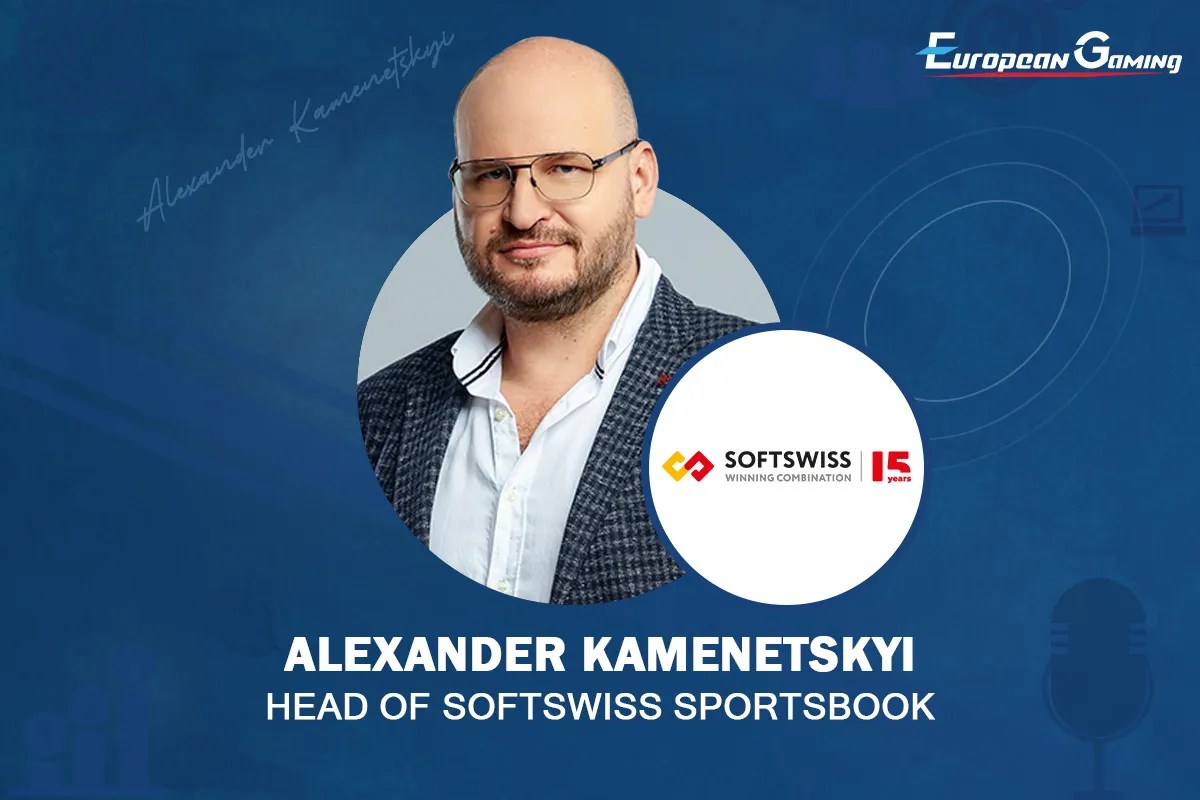
In an insightful interview with Alexander Kamenetskyi, Head of SOFTSWISS Sportsbook, we delve into the complex balance between promoting mainstream sports events and exploring niche markets in the betting world. This strategy enhances profitability and ensures a steady engagement across diverse betting markets, crucial for maintaining a dynamic and resilient business model in the competitive world of sports betting.
How should operators balance promoting popular sports events versus niche ones?
The effective strategy in betting is to diversify wagers across a broad range of sports events and markets. This approach helps minimise fluctuations in outcomes, enhancing both the profitability and predictability of your betting business.
Based on this, we recommend that operators promote all sports comprehensively to maintain steady activity and turnover. This ensures that players remain engaged with alternative options, even during periods lacking major events.
It’s crucial not only to focus on popular events like top football matches or major NBA tournaments but also to spotlight less mainstream sports such as water polo, badminton, and Formula 1. For instance, Australian football is notably underappreciated despite offering unique scheduling advantages that can be leveraged during off-peak times to attract bets.
How can you choose sports that have the best chance of attracting your audience?
To effectively capture your audience’s attention, it’s crucial to identify alternative events during periods when popular events like the Champions League are not happening. Our strategy involves actively promoting these alternatives to familiarise players with new tournaments and sports.
We have two dedicated teams: one that selects potential events and advises operators on what to highlight, while the other crafts promotional campaigns to ensure these events resonate with your audience.
The primary factors we consider when selecting events are Total Bets and the number of bets placed on a specific event or tournament. Popularity is our second criterion, which we measure by comparing the turnover to the number of participating players.
For instance, if there are no football championships over a weekend due to Euro qualifying matches, we might suggest promoting NBA evening games or volleyball tournaments to fill the gap left by high-profile football events.
However, it’s also beneficial to occasionally promote sports other than football, even when popular football matches are available. This strategy helps diversify the betting habits of the audience, which is vital for maintaining a stable and engaging product.
How far in advance do you need to start working on a promotional campaign?
We typically share promotional materials with operators two weeks prior to the event. This timeframe usually provides ample opportunity for operators to finalise the text and graphics. If we opt to use bonuses as the main promotional tool, we generate the rules, bonuses, and banners automatically. It’s then up to the operator to create and either self-publish the content or do so with our assistance.
What promotional channels would you recommend focusing on?
Operators have a variety of tools at their disposal, from email and SMS campaigns to managing their own channels on Telegram and other messaging platforms where they can share updates, offer bonuses, and more. Many even offer additional bonuses for subscribers of these communities, which proves effective in building a targeted and loyal audience interested in your project’s bonuses.
Another effective strategy involves placing promotional banners on various sections of the operator’s website, such as the homepage, event pages, and user dashboards. Additionally, collaborating with influencers like streamers can significantly boost traffic.
It’s also crucial not to overlook the power of email newsletters. When crafting content for these, it’s important to consider user behaviour and device preferences. For instance, with over 90% of our current revenue coming from mobile devices, it’s safe to assume most emails will be opened on a smartphone. Thus, optimising for mobile viewing is key. Our tests show that simple, structured, and transparent offers tend to perform best – you only have a few seconds to capture the player’s attention and persuade them to click through.
Do promotions without financial incentives like bonuses still work?
Let’s be clear: bonuses and promotions are fundamental to attracting players, especially those who rely on luck to multiply their capital. Seen as lucky breaks, bonuses allow participation without direct cost. Properly integrated into the marketing strategy, these incentives not only maintain player interest but significantly enhance financial performance.
For example, if an operator earns 15% from express bets, they can afford to redistribute 5% of that as bonuses, slightly reducing their margin to 10%, but potentially increasing user engagement and solving other operational issues.
Furthermore, promotions enable operators to direct betting activity efficiently. While major events naturally draw attention, incorporating bonuses for lesser-known events like the World Curling Championship can broaden a player’s interest and betting activities, introducing them to new sports and betting markets. This strategy not only diversifies the player’s experience but also stabilises the operator’s financials by spreading funds across various sports, thereby reducing the impact of financial peaks and troughs during major events.
Some operators focus primarily on significant events, leading to considerable financial volatility. For example, many faced challenges during the European Football Championship qualification matches when favourites won, negatively impacting financial outcomes. Operators that engage their audience across a spectrum of events tend to experience more stable performance.
Ultimately, using high-profile events to attract new players while promoting a diverse range of smaller events can create a more robust and diversified betting environment. This approach mitigates risks and cultivates a more engaged and knowledgeable betting community.
How likely is it that a person who came to a particular event will continue engaging with you afterwards? What influence can an operator have during this time?
Welcome packages with various bonuses are highly effective in this scenario. The primary goal is to familiarise new players with the range of bonuses and sports offered. Ideally, the entrance bonus program should provide about 20-30% to engage the player effectively.
Besides the welcome package, we can implement trigger-based rules during major events. For instance, a new player might come for the World Cup, and we could offer a promotion like: “Win three World Cup bets and receive a free bet for Wimbledon.”
Once engaged, they might notice a dominant player like Djokovic and place a bet on tennis, triggering another promotion. For example, we could offer a 50% bonus for making an express bet with specific odds on three tennis events. This showcases our diverse bonus system and introduces new sports gradually.
Furthermore, promoting sports tends to be easier than casinos because there are more events and thus more opportunities to engage players through channels like email newsletters, with less risk of being flagged for spam.
We advise our operators to customise bonuses for specific player demographics – like promoting Brazilian tennis players to Brazilian users or Nigerian athletes to Nigerian users. This targeted approach is significantly more effective than generic offers and resonates even with experienced casino players.
However, it’s crucial for operators to view their offerings holistically; they don’t just have a casino or sports section, but a comprehensive project where every part should function seamlessly together, including promotions and the product’s internal functionality.
The post The Full Spectrum Strategy: How Betting on Both Popular and Lesser-Known Sports Pays Off appeared first on European Gaming Industry News.
Interviews
Tom Galanis: giving a First Look at the Top of the Slots
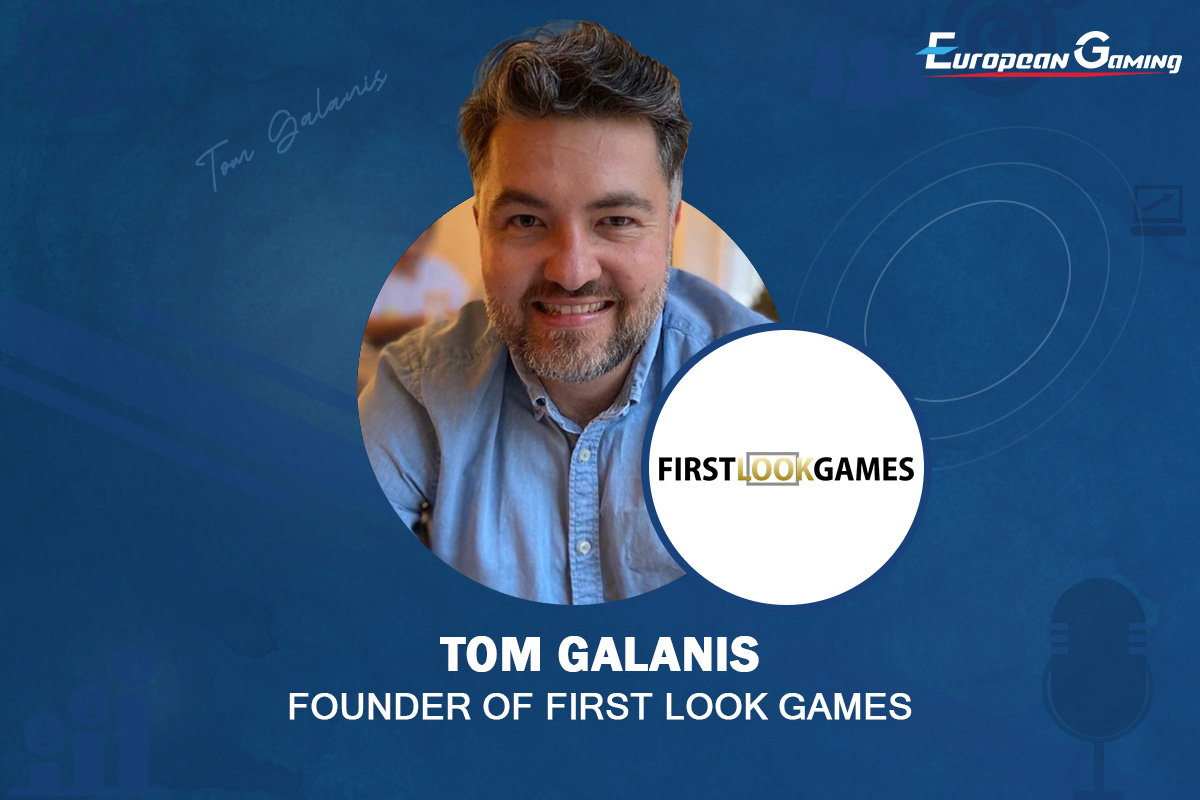
Gone are the days when we would spend a Thursday evening waiting for Top of the Pops to come on our televisions so that we could see who would be performing that week. The music show may no longer be running, but First Look Games has taken inspiration from the long-running staple and added a slot spin, to create Top of the Slots.
To give us more insight, First Look Games Founder Tom Galanis walks us through the ideation process behind Top of the Slots and how this is helping to give an accurate representation of the top-performing slot titles each month.
You launched Top of the Slots by First Look Games a couple of weeks ago. For those that may have missed the launch, what does this involve?
Tom Galanis: Top of the Slots is a showcase for the top 10 games launched by game studios via the First Look Games platform over the previous 90 days. It’s a never-before-seen take on game popularity and one our game studio partners, and affiliate users are already loving!
What was the thought process behind launching Top of the Slots?
Tom Galanis: First Look Games captures unique data for our game studio partners and Top of the Slots is designed to illustrate the most successful games, benchmarked by this unique data insight, to the industry.
What do game providers have to do to make it into the top ten releases for the month? What metrics do you use to evaluate success?
Tom Galanis: In order to make it in to the top 10, game studios need to release titles via our platform that successfully resonate with the 850+ affiliates that utilise First Look Games, making full use of the suite of tools we offer on and outside of the platform to engage affiliate marketers in the promotion of their game. The rankings are based on the First Look Games Index for all games launched to the market in the preceding 90 days, which combines:
- a) Downloads – which is the aggregated total of download sessions amongst affiliates on the platform. Affiliates download assets including logos, game sheets, video files, screenshots, banners and game artwork;
- b) Hits – this is the aggregated total number of game reviews for the game, created by affiliates using the First Look Games platform;
- c) Reach – this is the aggregated unique visitor count of the websites containing the Hits;
- d) Demo Game Sessions – this is the number of free to play demo game sessions that have taken place from iFrames placed on Hits.
- e) Sentiment Score – this is the average sentiment score from Hits
The games that rank well in this index are obviously commercially successful in their own right but are also being reviewed by affiliates because of the engagement of the game studio with the First Look Games platform, and consequently, with affiliates.
Our most active game studios are not just releasing great games with frequency but are also ensuring their game and studio news is distributed across the First Look Games platform and social channels and that a full and diverse range of marketing assets and game information is being provided through the platform prior to a game’s release. This best equips affiliates to understand the features of a game so that they can successfully convey this to their player audience, which, collectively amongst FLG affiliates, is very significant, totalling more than 20 million slots players worldwide.
Tell us a bit more about the First Look Games sentiment analysis – how is this helping to remove the biases from the ranking process? What data do you use to inform this analysis?
Tom Galanis: Once our technology has identified a new game review, First Look Games uses Natural Language Processing to ‘read’ the review and assess what the affiliate makes of the game. We share a short snapshot of this with the game studio and assign a score to the review based on how positive the affiliate has been in their review of the game. The more positive the language used in the review, the higher the score.
Sentiment scores are then aggregated across all reviews of the game to give a score for the game, and across all games to give the studio a score to benchmark against peers. Using AI, we are able to objectify the subjective to provide true 360 analysis on how affiliates are promoting a game.
What can we expect to see from First Look Games for the remainder of this year?
Tom Galanis: We have a perpetual roadmap of both new studio launches and technical advancements of the platform for affiliates and game studios to look forward to!
The post Tom Galanis: giving a First Look at the Top of the Slots appeared first on European Gaming Industry News.
Interviews
Exclusive Q&A w/ Steven Paton, Commercial Director at Wise Gaming
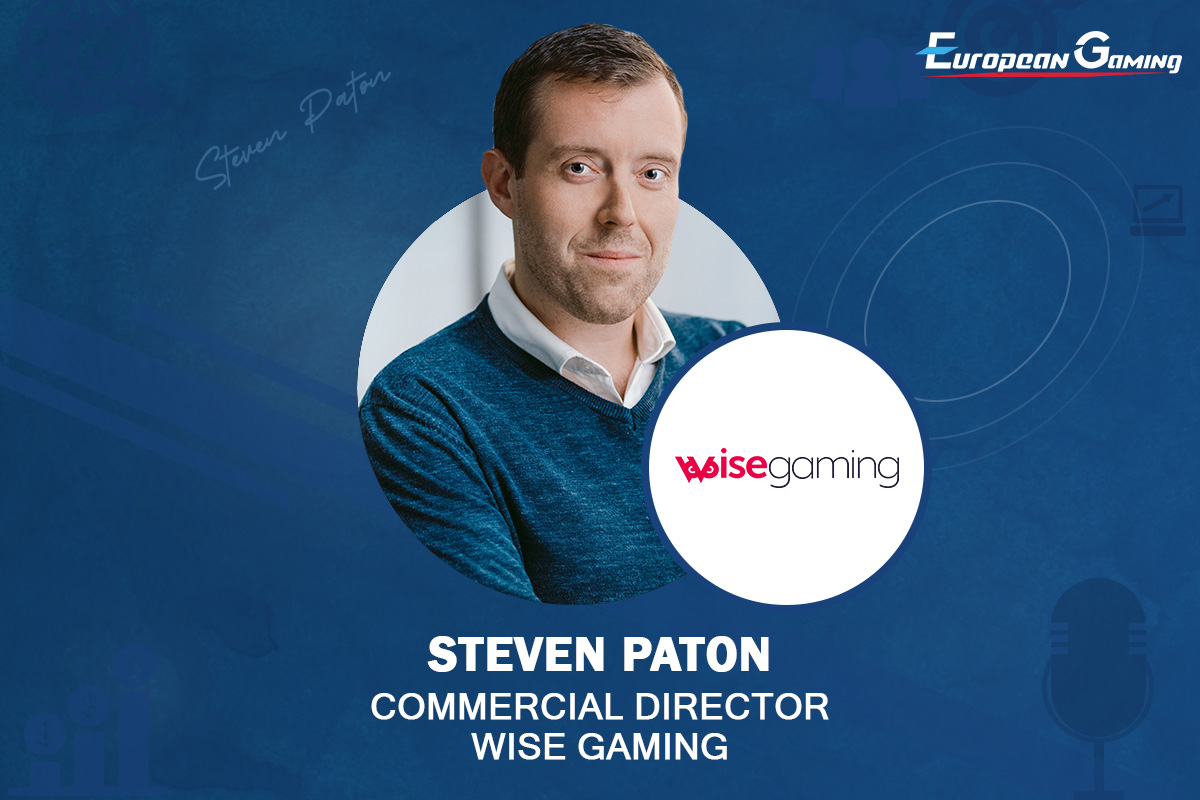
Could you describe the range of products and services that Wise Gaming offers? What makes them unique or appealing to potential clients?
Wise Gaming is the fastest-growing, Complete platform offering both White-Label & Turnkey Solutions. The Wise Gaming solutions are built from our team’s extensive experience: 15 years B2C and 10 years B2B. We know the importance of a truly modular approach, allowing our partner the ability to obtain our entire solution or individual components to enhance what they already have.
In what regions or markets does Wise Gaming primarily operate? Are there any plans for expansion into new territories?
Our focus has been on both the European & LatAm Continents. With enormous success in our B2C operations, we are relying on our extensive experience. We believe the balance between established & emerging markets brings both knowledge and the ability to learn and adapt, truly focusing on our partners needs without limitations.
2025 will be Wise Gaming’s year of expansion! 2024‘s goal is about building on our success in EU & LatAm whilst planning next years’ growth in both Africa & Asia.
What technologies does Wise Gaming employ to deliver its iGaming solutions? Can you highlight any proprietary technologies or platforms that differentiate your offerings?
From our 15 years of B2C success, we felt that we understood both the pleasure points and pain points that most operators face on a daily & weekly basis. Therefore, we build our Wise Gaming solutions with a customer-centric approach, How can we support our partners to support their customers. We diligently sourced the industry’s best-in-class providers for both our Sportsbook & Casino content, utilizing Enterprise software to provide the most robust offering in the iGaming industry.
Our dedicated in-house teams visualize, build and enhance our Proprietary systems for each of our Partner’s needs, making each of our partners brands Unique.
In what ways does Wise Gaming prioritise security and data protection within its technology infrastructure?
As previously mentioned, our customer-centric approach is vitally important to Wise Gaming and our Partners! Providing the correct technology and experience to our partners is key to having a successful KYC, AML, Due Diligence and Data Protection process. We opted for Amazon AWS solutioning to provide market-leading security, Encrypted databases & data storage, penetration resilience, DDoS attack elimination, dedicated Back-Office segmentation and User-based access, protecting player data while safeguarding our partners operations.
What are the current trends or challenges you’re seeing in the iGaming market? How is Wise Gaming adapting to these changes?
The speed in which technology advances is always a challenge for any provider. The key is to know your markets, the players, the accessibility of online entertainment such a sports betting & casinos and implement the technology that meets these variables. Everyone is talking about AI & Machine learning, and rightly so! With such advancements AI & Machine Learning models, it would be irresponsible not to utilize them. Whether it’s for Player customisation, Events based recommendation or supporting operational needs such as RG, KYC & AML, AI & machine Learning should be used to ENHANCE human interaction, not replace. At Wise Gaming, we have already implemented AI & Machine Learning models to provide the unique edge to our partners.
Also localized content is important. Every market is its own unique playground with their own specific cultural identities. Knowing these identities and becoming an expert in these will not only assist in the acquisition of players, it signifies a brand’s genuineness and authenticity to that market and allows greater player retention. At Wise Gaming we have already implemented A.I & Machine Learning models
How does Wise Gaming ensure compliance with regulations in various jurisdictions? How important is regulatory adherence in your sales approach?
I will answer these 2 questions together. The market is experiencing a shift in regulation, and compliance. MGA & CGA license domination has been challenged, with more and more markets opting for tighter safety measures and implementing their own self-regulated approach. This brings safety to players and trust.
Working alongside regulators will always help, and more importantly, we can learn from each other. Adhering to regulation is ultimately for a player’s safety and that is paramount for the industry’s longevity. Wise Gaming continuously enhances its platform to conform with regulations, making it safe and reliable for our partners.
What are the key factors potential clients considering when choosing an iGaming provider, and how does Wise Gaming address these factors in its offerings?
As previously mentioned, experience and knowledge are key attributes from both an operational and technical aspect. “You can’t plant apple trees and expect to get oranges!” Wise Gaming’s experience & knowledge puts us, and our partners, at the forefront of each market, allowing substantial growth and higher ROI.
Time to market should also be a priority. Whilst most Providers offer 2-4 months implementation time, Wise Gaming can deploy your platform within 2-4 weeks, giving us the competitive edge in a highly competitive space.
How does Wise Gaming incorporate feedback from clients into product development and improvement?
Experience and knowledge are simply 1’s learning over time. Our approach at Wise Gaming is that of a learning mentality, “you are never too old to learn!” iGaming is rich in experts – We trust our Partners, and they trust us, it’s the unification that builds long-term partnerships. We have 2 ears and 1 mouth, use them in that order!
What are the future goals and plans for Wise Gaming? Any upcoming innovations or developments you can share?
Our goal is to continue providing a reliable and robust platform, listening and delivering an innovative and unique solution for each of our Partners.
Innovative Developments – If we tell everyone, they won’t be innovative 😉 However, what I can say is that we are focused on “advanced”, real-time localised AI recommended content both Casino & Sportsbook.
The post Exclusive Q&A w/ Steven Paton, Commercial Director at Wise Gaming appeared first on European Gaming Industry News.
-

 Baltics5 days ago
Baltics5 days agoMARE BALTICUM Gaming & TECH Summit Announces Final Agenda for 2024 Event
-

 Australia5 days ago
Australia5 days agoACMA Reveals Illegal Gambling Crackdown Results
-

 AGCO5 days ago
AGCO5 days agoAGCO Requires Ontario Gaming Operators to Stop Offering WBA Bets Due to Integrity Concerns
-

 Africa5 days ago
Africa5 days agoNE Group powers 888bets launch in Angola
-

 3 Oaks Gaming5 days ago
3 Oaks Gaming5 days ago3 Oaks Gaming extends Brazilian outreach with Bet7k partnership
-

 Latest News4 days ago
Latest News4 days agoINSPIRED LAUNCHES VIRTUAL SPORTS WITH COMEON GROUP
-

 Álvaro Camargo Country Manager Brazil at Xtremepush.4 days ago
Álvaro Camargo Country Manager Brazil at Xtremepush.4 days agoXtremepush boosts Brazilian presence with Weebet platform deal
-

 Compliance Updates4 days ago
Compliance Updates4 days agoHub88 granted supplier licence in Peru

